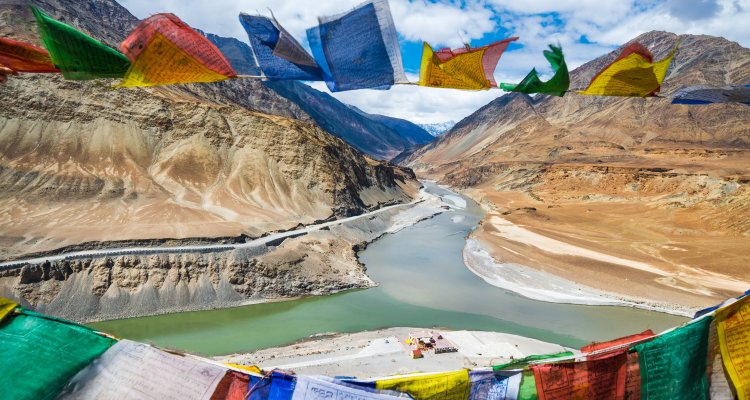
Project
SustainIndus
SustainIndus - targeting water and food security interactions in a climate change hotspot
Research Introduction
SustainIndus is an interdisciplinary research project to support the UN Sustainable Development Goals and sustainable shared water management in the transboundary Indus river basin. The Indus basin is a global climate change hotspot, characterized by a rapidly growing population and strong economic development. This is associated with an exponential increase in water, food and energy demands. Given the arid climate in the densely populated and heavily irrigated plains and the geopolitical tensions between the riparian states, the road towards achieving the UN Sustainable Development Goals (SDGs) for water, energy and food is extremely challenging.
Research challenges
SustainIndus aims to develop sustainable pathways that support decision makers and practitioners to develop climate–smart solutions to provide food (SDG 2), water (SDG 6) and energy (SDG 7) to all people in the Indus basin now and in the future. The research project is divided into four work packages.
The objective of Work Package 3 is to assess how the food production systems of the Indus basin can be adapted to improve water and food security SDGs under various scenarios of climate change and socio-economic development. To do so, a modelling approach is combined with direct stakeholder input to provide disaggregated insight into the impact of climatic and socio-economic drivers on the development of food and water availability. Next, the field level efficiency of climate smart-innovations is upscaled to basin-level models and used to explore the trade-offs and synergies that large-scale implementations may hold.
This modelling insight is used to develop integrated adaptation strategies within the context of the water-food-energy nexus and in relation to other key SDGs, such as ecosystem health. The over-all research project provides an integrated perspective on basin-scale adaptation strategies to guarantee future food and water security.